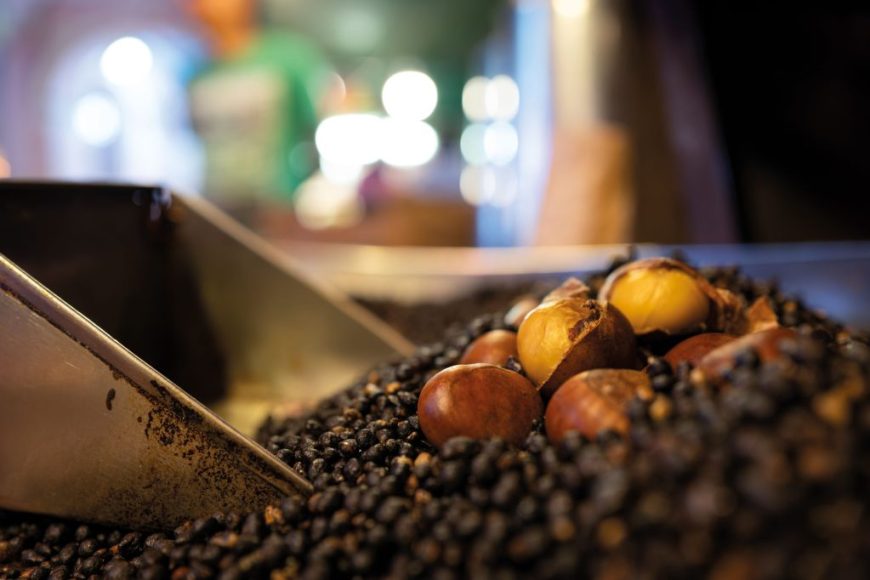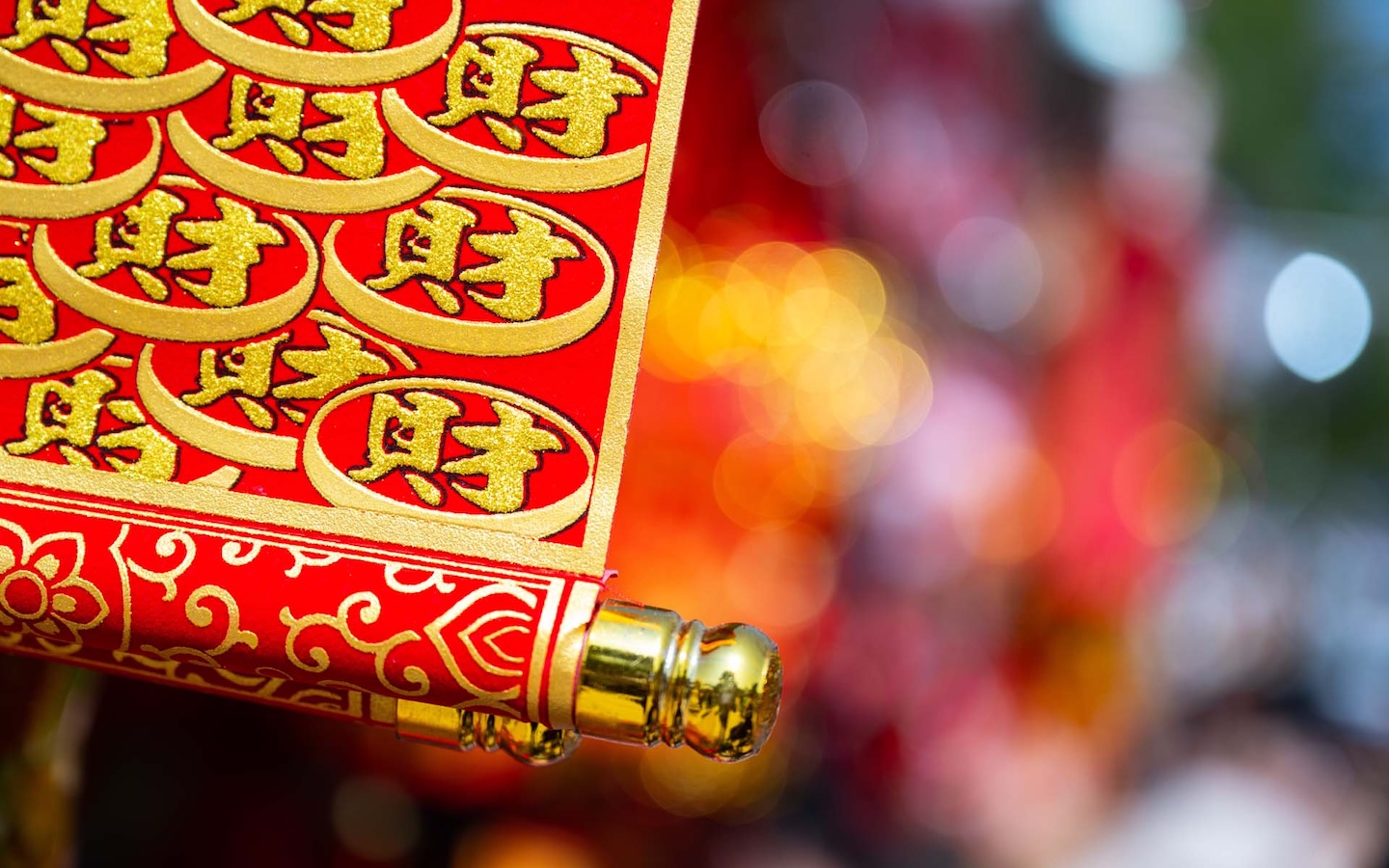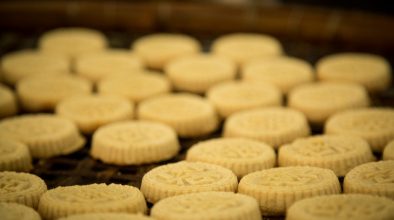As the brisk autumn breeze rolls into Senado Square, one can’t help but notice an aroma of roasted chestnuts wafting through the air. It’s accompanied by a distinctive sound: the clangour of chestnuts tumbling inside their roasting drum, thwacking the metal sides as it rotates. This 50-year-old, custom-made contraption is the secret to the best roasted nuts in Macao, says veteran caldarrostaio António Chao – who has been carrying on his family’s tradition for decades.
Located on Avenida de Almeida Ribeiro (also known as San Ma Lou), Chao’s stall has been a seasonal go-to for generations of locals. His father started roasting chestnuts under the business name Cheng Kei around 80 years ago, and that same stall is one of the last places in Macao where you can still buy the earthy delicacy. Chao joined his dad in the 1980s, then continued on his own after his father died just over a decade ago.
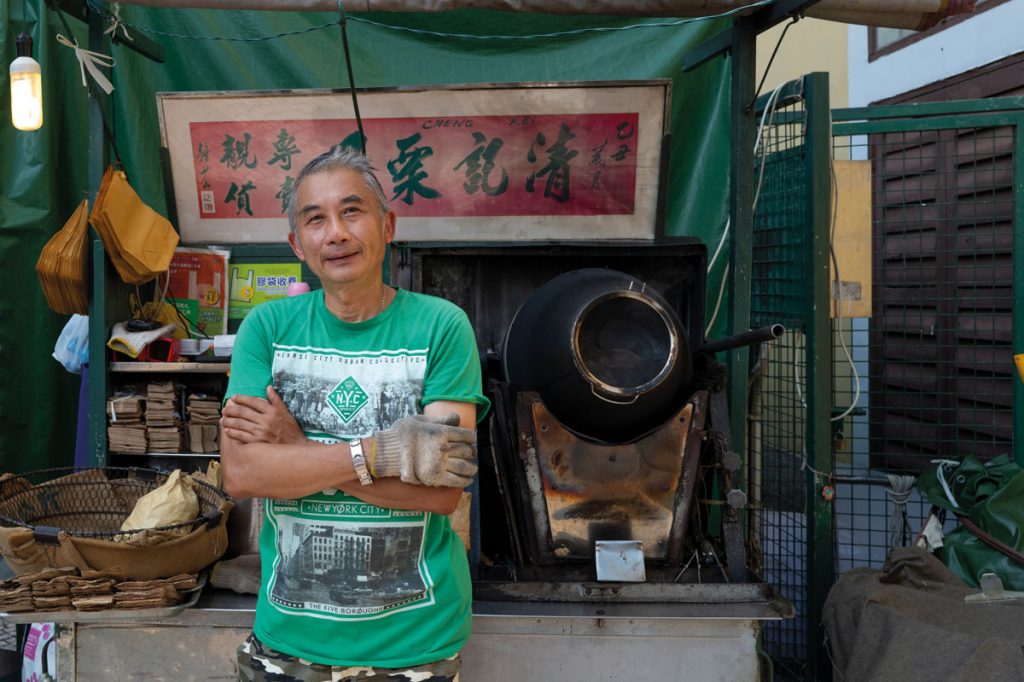
As the Mid-Autumn Festival winds up each year, Chao reopens his stall. He mans it throughout winter and into the spring, selling just one product: sweet-yet-smokey chestnuts. Chao carefully selects each nut for its size and texture, and has perfected his roasting technique to guarantee the creamiest kernel within its charred shell.
“I will keep running this stall until I can’t,” says Chao, whose dedication has made Cheng Kei a symbol of consistency in the rapidly changing Special Administrative Region (SAR).
Reinventing the roast
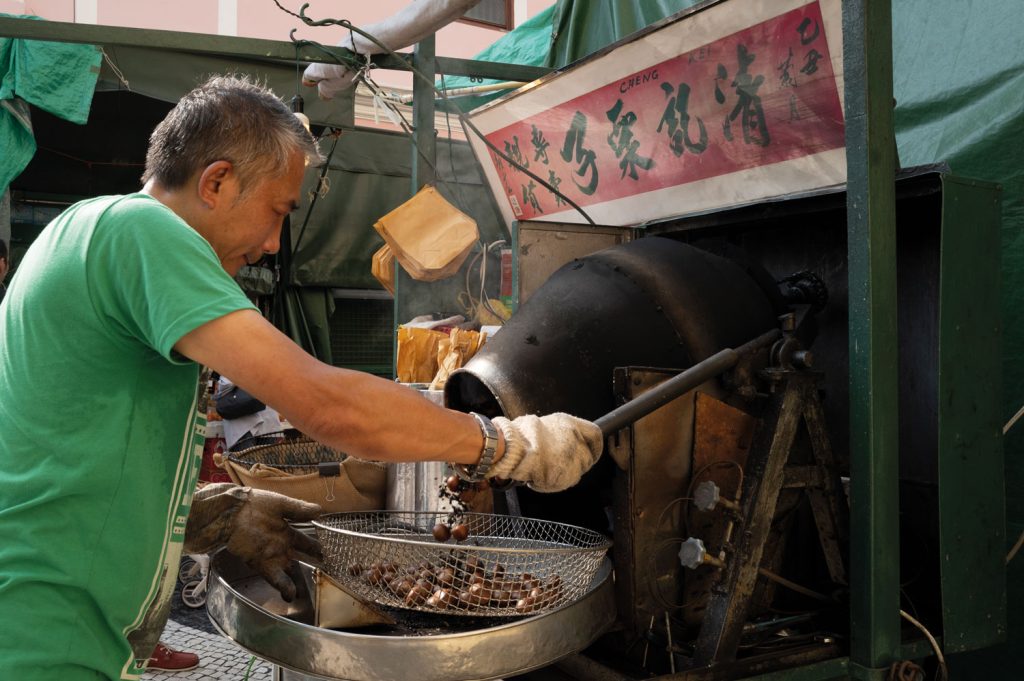
In the early days, roasting chestnuts was a laborious process. Chao’s dad used a paraffin pump to fuel his burner, monitoring the flame like a hawk to ensure an even heat – all while turning a crank by hand to keep the drum rolling. Each batch took nearly 45 minutes to finish.
A few decades in, while watching a concrete mixer roll by, the caldarrostaio had an idea that would transform the way he worked. He enlisted a friend to build a semi-automated roasting machine that mimicked the rotating barrel of the mixer. This invention saw Chao’s father become the first chestnut vendor in Macao to mechanise his operation, which sped up the roasting process considerably.
“We’ve used the same machine ever since, for more than 50 years,” says Chao, who is of the ‘if it ain’t broke, don’t fix it’ mentality. The special containers he uses to keep his roasted chestnuts toasty have been going for almost as long as the roaster.
These containers are also crucial to Cheng Kei’s success. If you put freshly roasted chestnuts straight into a paper bag, explains Chao, steam builds up and they go mushy. The containers encourage airflow, keeping their exterior crispy and insides perfectly tender.
Following in his dad’s footsteps
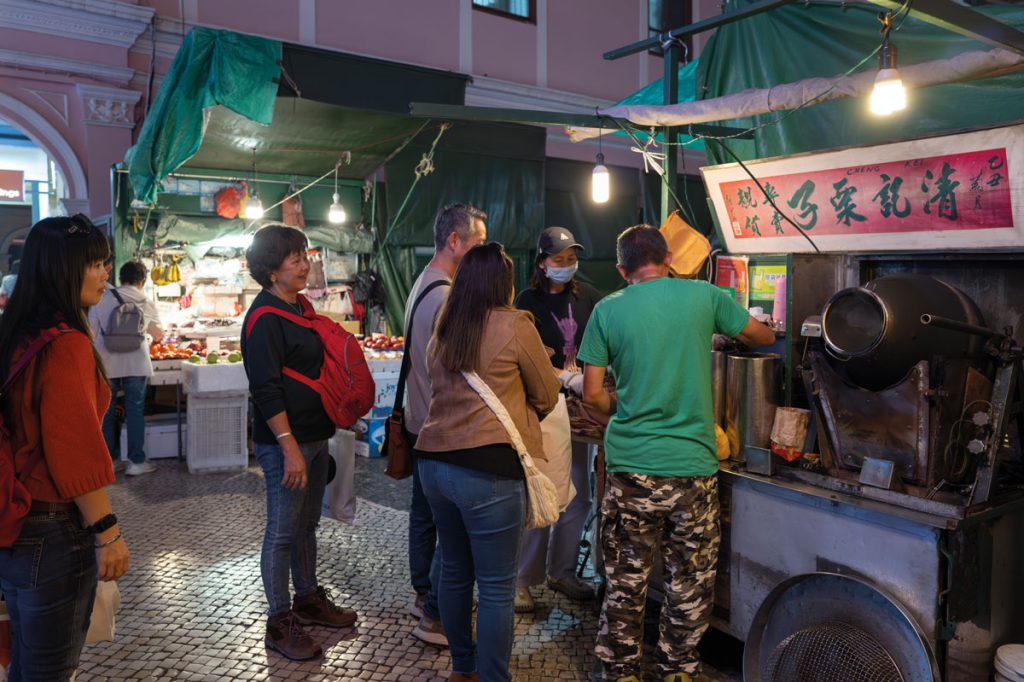
Growing up, Chao hadn’t intended to follow his father into the chestnut business. He simply stepped up to help out when his dad was short-staffed. But what was supposed to be a temporary situation happened to suit them both.
Chao learned the job from his father and even today, embodies the meticulous work ethic the older man instilled in him. As the chestnut season approaches each September, Chao starts his day early, sorting through hundreds of chestnuts to select only the finest.
“They can’t be too big or too small,” he explains. “If they’re too big, they don’t roast well. If they’re too small, they get over-roasted easily. Of course, selecting the best chestnuts is all about experience. There are so many steps and things I look out for, from purchasing and washing the chestnuts to leaving them to dry. It can take three or four days to identify and prepare the ones I like.”
By the early afternoon, Chao is at his stall, working the roasting machine. He buries his chestnuts in a special type of sand that turns black when it gets hot, then – when the nuts are done – he separates them from sand with a large mesh strainer. It’s a method commonly used in Asia. While Chao’s stall usually stays open until 10 or 11 pm, peak holidays can see his hours stretch even longer. It’s a tough job, he admits, requiring focus and endurance. The chestnuts sometimes explode like firecrackers when they’re too hot, and often Chao has to reach into the furnace-like machine with gloved hands to fix problems on the fly. But Chao says he wouldn’t trade his work for anything.
Holding on to tradition, and letting go
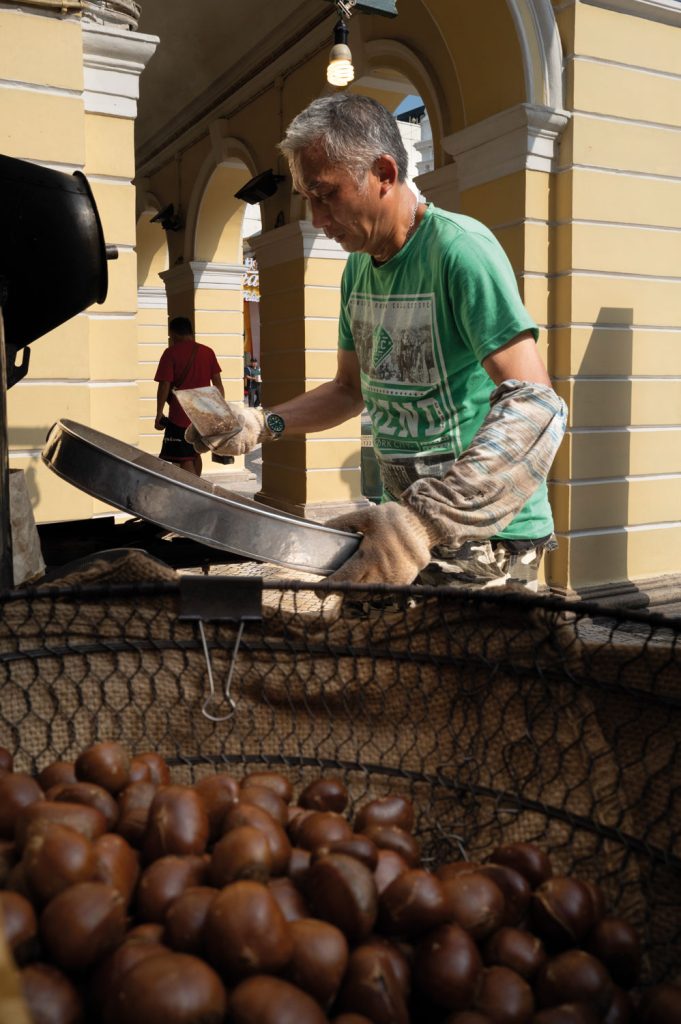
During the off season, Chao finds other ways to support his family, working part-time as a jeweller and more recently obtaining his taxi licence. But when autumn arrives, he returns to the chestnut stall, relieved to be back carrying on his father’s legacy.
The chestnut trade isn’t exactly booming, however. While recent decades’ influx of tourists from the mainland have spurred Macao’s economy, roasted chestnuts don’t hold much novelty for mainlanders as the treats are readily available in many parts of China. Chao says his stall used to be very popular with visitors from Southeast Asia, though most tourists tend to be more interested in asking for directions these days. “If I got paid for the number of questions I answer, I’d be a rich man,” Chao jokes.
The city’s growth has also shifted local habits. “Nowadays, locals tend to avoid [Avenida de Almeida Ribeiro] because of the crowds,” he says. Moviegoers were a staple customer for a long while, but Chao says that competition in the snacking arena has diluted his patron-base.
Still, Cheng Kei has its loyal customers – people who’ve been buying chestnuts from the stall for decades. “These people are my friends now,” says Chao. “They don’t even need to order. I’ll start packing their chestnuts when they’re walking towards me, because I already know how much they want.”
Despite the stall’s impressive longevity, Chao doesn’t expect the chestnut tradition to continue with his children or grandchildren. “I don’t want them to work under the scorching sun or torrential rain like I’ve had to over the years,” he says. His three daughters have all grown up and forged their own career paths.
For now, though, Chao has no plans to stop roasting. Cheng Kei’s chestnuts will continue to warm the hands of passersby on winter days, offering both a taste of the past and a fleeting reminder of a rapidly changing Macao. “As long as I can still earn enough money for my wife and I, and I’m able to work,” says Chao, “I’ll be here.”
